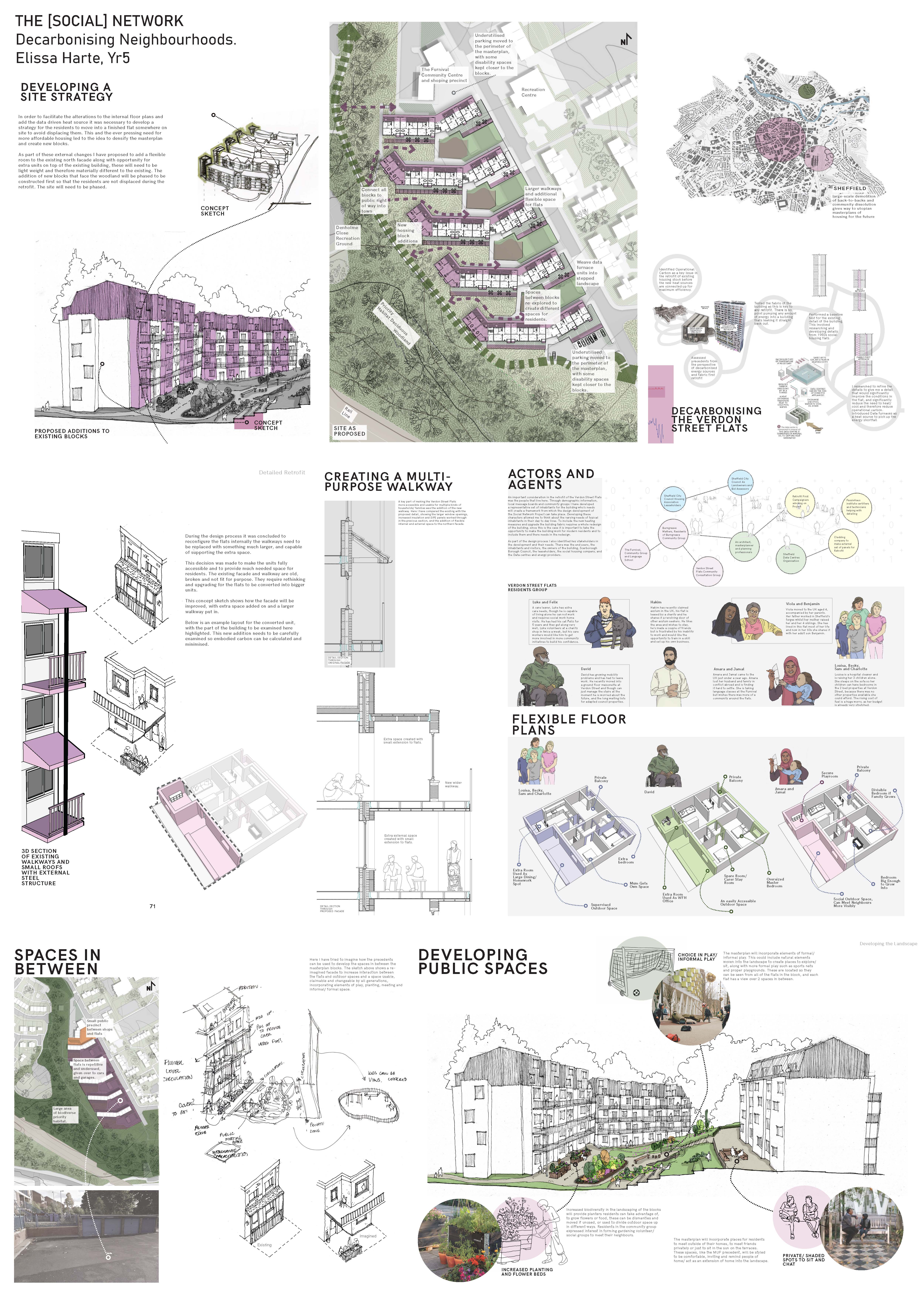This project scenario explores how local authorities can work with existing businesses, infrastructure and citizens to trial innovative solutions to the energy crisis for residents in socially-rented homes. The project imagines a scenario where Sheffield City Council look at their own assets and seek to alleviate fuel poverty in the communities that need it most, those residing in older, inefficient council-owned housing.
The design proposal explores the retrofit of an estate of five mid-rise blocks of maisonettes, within a ward where fuel poverty is 10% above the national average. As part of the strategy for lowering operational carbon, the project harnesses excess heat from data centres to power district heating systems. Energy costs are lowered: a principle of ‘public date for public good’, creating a loop where people can in some way benefit from companies harvesting and storage of their information. The system also results in a reduction of around 60% in the amount of energy needed to run the data centres.
A critical consideration is the involvement of residents in the design process and during and after the renovation of the blocks. Through demographic information, and local message boards a representative set of inhabitants for the building were imagined. Their requirements create a framework for the design development of the project. Converting the maisonettes to flats removes considerable circulation space and creates flexible and accessible space that can be reconfigured for different households’ needs.
